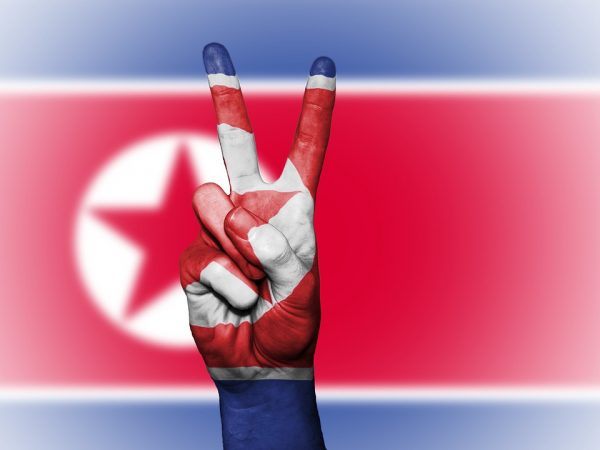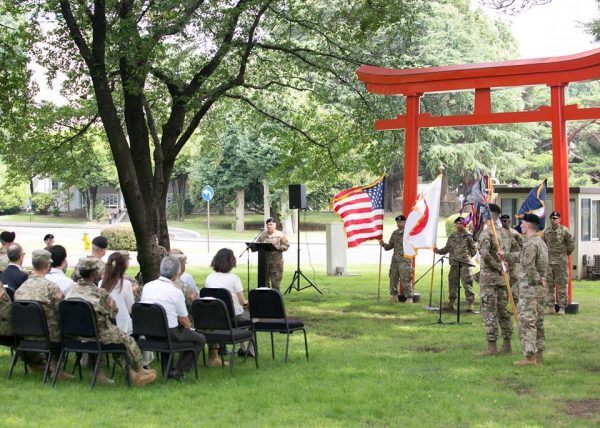More than two weeks since the historic meeting between President Trump and North Korean dictator Kim Jong Un in Singapore, it’s easy to feel like the summit was a bit anticlimactic.
The actual conference accomplished little. The build-up to the event included important wins for the US like the release of the American detainees, but from a facts-on-the-ground perspective, Singapore didn’t bring about any major changes. At least not yet.
True, there was a signing of a joint accord at the end of it all. But it was more or less a commitment to continue the process of reconciliation. The signed statement included the commitment of the United States and the DPRK to establish “relations in accordance with the desire […] for peace and prosperity.” North Korea also committed to “complete denuclearization of the Korean Peninsula” but took on no specified steps toward that goal. In short, while diplomatically the summit may have looked like a victory and has certainly given more hope for a peaceful future in the region, no concrete shifts occurred.
Indeed, in the time since Trump and Kim had their South Asian rendezvous, we’ve been getting a lot of mixed messages.
One recent report speaks of how Trump is worried the “nuclear deal” with North Korea could fall apart. “Have I been in deals, have you been in things where, people didn’t work out? It’s possible,” Trump said. Yet another article from early this month alleged that the administration is planning a second summit, this time for New York City. According to reports, the meeting would be timed with the United Nations General Assembly convening in September. That would be some show.
So which one is it? Are we on the cusp of achieving a lasting peace in the seven decades-long Korean conflict? Or is all the progress of warming-up relations between DPRK, South Korea, and the US about to collapse?
The answer is: it’s complicated. And that’s not a cop-out answer.
Despite extreme voices trying to portray either of the above scenarios as the definite outcome, there is only one way of prudently assessing the future of US/DPRK reconciliation.

That position is something like this: There are numerous issues relating to America and North Korea solidifying a real, lasting peace. From US military presence in South Korea, to the US-Japanese alliance, to weighing any future economic assistance to Pyongyang, a very wide range of factors need to be taken into account. Moves on any one of them could make or break a potential long-term deal.
This is why the exchange of all those “warming up” gestures over the past several months (like the politically empty showing up by North Korea at the Winter Olympics) had at least some significance. They showed that DPRK under Kim could have a diplomatic give-and-take with the West. That way, when the two nations come up to more important issues, they’ll be a smidgen of operative trust.
Mixed messages is the only accurate perception of where we’re holding now.
The US desperately wants to reconcile with North Korea and their overlords. That is not a secret. The long-term benefits of such an achievement would be big. At the same time, the US has quite a few interests on the Peninsula and the broader Pacific that it will not just forfeit, nor will it place them in jeopardy in order to reconcile with an unreliable partner. And North Korea doesn’t exactly have the best track record.
With this premise in mind, we can traverse through the latest and most important updates with a somber, balanced outlook.
Bolstering Japan
Since the end of World War II, Japan has been the most important US ally in the Pacific region. Democratic, reliable, and a thriving economy (currently the third largest in the world), all made for a natural partner of the United States. From a security perspective, Japan has provided an important base of operations to the US military for decades. Some 130 installations across the country’s islands house forces from every branch of the military. The threat of North Korea has always included a danger to Japan, repeatedly made explicit by North Korean leaders over the decades.
Even as American diplomats are pushing forward the current reconciliation efforts, the administration is continuing to arm Japan and strengthen its defensive capacity against North Korean aggression. International media reported that Japan will soon finalize the purchase from the United States of the coveted Aegis Ballistic Missile Defense System. The estimated cost of the two Aegis Ashore batteries comes to about $2 billion. The Aegis has several layers of interceptor rockets. The system has the ability to intercept the North Korean intercontinental ballistic missiles pointed in its direction. Although the platforms wouldn’t be actually deployed by the Japanese Defense Forces any time in the near future, the timing of the deal sent a clear message. Media sources were quick to point out the agreement between US and Japanese officials was finalized just two weeks after the Singapore summit. Meaning the two countries were in active talks while the summit was taking place. There is no contradiction here. The US will continue to prepare itself and its partners for dealing with aggression coming out of North Korea, even as the State Department extends olive branches to Kim.

Expansion in South Korea
The connection America maintains with South Korea is essentially a layover from the Korean War. At the conclusion of that conflict, the US began investing heavily to keep communist infringement at bay in the North. After six decades of gradual build-up, the US military maintains a small army of nearly 30,000 personnel in South Korea, under the unified command of United States Forces Korea (USFK). Every year, joint drills have been held between US and South Korean forces. The scenarios of these exercises are always warding off a North Korean offensive, along with a counter-attack to overthrow the communist regime. There are no ambiguities as to what the US military is doing along DPRK’s border.
In early July, US officials reported that the military would be building a new massive base to house USFK headquarters. Named Camp Humphrey, the planned installation will be the largest overseas US military facility, spanning some nine square miles.
Simply put, the move shows that USFK is conducting business as usual, positioning and housing their forces in the best way to achieve their mission. Defense Secretary Jim Mattis said that the establishment of the new base reaffirmed America’s “ironclad” commitment to the country’s security. Additionally, the move of headquarters some 45 miles south of its original location in Seoul places it out of range of most North Korean artillery guns targeting the capital’s metropolitan area.
At the same time, however, officials were quick to frame the move within the broader context of ongoing reconciliation. At an opening ceremony, South Korea’s Defense Minister Song Young-moo reminded the audience that “the Korean Peninsula is at a turning point from a violent post-war confrontation to peace” and asserted “North Korea’s nuclear weapons should be scrapped for good” in order for the two Koreas to “open up a new era of exchanges and cooperation.”

The Nukes are Still There
Like the US, Pyongyang is also planning for a world in which North Korea is still at odds with the West.
In a recent assessment, US intelligence sources confirmed that DPRK is still at work expanding its nuclear capabilities. The intelligence gathered by agencies indicates that North Korea has increased its production of fuel for nuclear weapons at multiple secret sites in recent months.
Contrary to Trump’s apparently exuberant optimism (there is “no longer a nuclear threat” from North Korea were Trump’s words following Singapore), CIA and other intelligence agencies see a regime positioning itself to extract every concession it can from the Trump administration.
This certainly gives credit to the position of the skeptics. From the start, there have been those critical of reconciliation, claiming that the apparent willingness of Kim to cooperate was just a sham, and an elaborate scheme to gain concessions from the US and the South.
This possibility must certainly be taken into account. We should hope that Trump or anyone in his administration isn’t overly gung ho about peace with DPRK to ignore the indications of betrayal if and when they come.
But again, in terms of moving forward, none of this undermines continued steps—albeit cautious ones—in a forward direction. The US must keep its hand outstretched, signaling both a sincere desire for peace, and a position of shrewdness and strength.
















